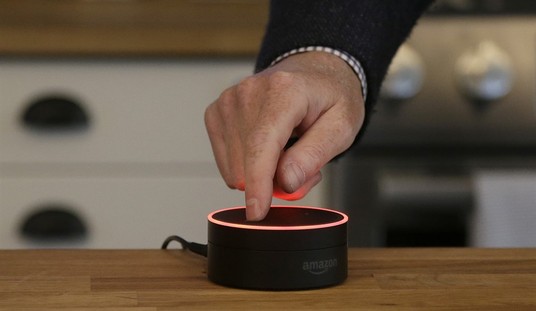In “The Sporting Lie,” Theodore Dalrymple runs roughshod over the modern sports addict in both Europe and America, and in many ways, I can’t say I blame him:
Since then, my attitude has only hardened against sport, and now I feel a visceral dislike of it. Whether this signifies a change in me, or in sport, I am unsure. Sport is nowadays a bit like propaganda in a totalitarian society: it is inescapable. For example I was recently in quite a good restaurant in Washington D.C. in which, nevertheless, there was a large flat-screened television relaying a baseball game. Someone once explained the rules of baseball to me, but it bored me even after I had fleetingly understood them. The players seemed too fat to be real athletes, and as for the girls waving pompoms and the men dressed in the colors of their favorite team, they seemed archetypes of willing suspension of intelligence and self-respect.
Things are no better in Europe, where it is soccer that is inescapable. People talk about it as they walk down the street together; the newspapers are full of it, indeed fuller of it than of anything else; bars and pubs relay it, seemingly twenty-four hours a day; and most sinister of all, people are afraid to express no interest in it.
A old fellow student of mine, now a distinguished professor, recently gave an interview in a learned journal and was asked what gave him the greatest pleasure in life. He replied that it was when the team he supported scored a goal.
I tried to work out whether this was worse true than untrue. If true it implied a rather sad existence, in which the kicking of a ball into the net of an opponent’s goal by a highly paid mercenary, who would immediately play for the opposing side if offered a few paltry millions more a year or a week to do so, and who had absolutely no connection with the area of the team for which he played, not geographical, cultural, personal, familial, or even national, was the highest imaginable point. But if untrue, why the lie, why did he pretend that a goal scored by “his” team was so important to him?
Which is nicely erudite rephrasing of Jerry Seinfeld’s classic “Rooting for Laundry” monologue:
.
Rooting for Laundry from Melel Media on Vimeo
I’m actually well aware that when I watch sports, I’m entirely rooting for laundry. With the exception of an occasional local San Jose Sharks game my wife and I attend in person, the only sport I’ve ever really followed is pro football. As I’ve written before, I became a fan at the peak of the Tom Landry-era Dallas Cowboys’ “America’s Team” hype, when they went to back-to-back Super Bowls and multiple NFC championships, began featuring showgirl-styled cheerleaders, and appeared on CBS and ABC seemingly every Sunday and Monday night.
To borrow from the latest academic cliché, watching the NFL on TV functions as a sort of reverse trigger-warning for me. I put on a Cowboys game and all of the emotions I built up as a kid during the Landry, Staubach and Danny White America’s Team era instantly start to kick in no matter how badly Jerry Jones has mismanaged the team’s current incarnation, and I find myself sucked into the TV screen for a couple of hours “Money For Nothing”-style. I suspect every team sport has a similar effect on their fans – perhaps even more so if they’re rooting for the team of the college they once attended. But for me, that narcotic fix is merely temporary, and once the kinetic action of the game itself is over, it’s back to remembering how intractably politicized the NFL has become, and how the league, headquartered on Park Avenue, Ground Zero of Northeast Corridor Establishment Liberalism, has forgotten its hardscrabble Midwestern roots.
It’s a frequent cliché that pro sports are reflection on culture, but anyone who has watched the NFL over the past several decades has seen how its transformation reflects America’s increasingly coarsened pop culture. In between tossing aside Rush Limbaugh via a made-up Media Matters false quote to ordering sensitivity training to its players in response to openly gay Michael Sam’s draft announcement but not to their mocking of openly Christian Tim Tebow, to looking the other way at NBC politicizing games with Bob Costas halftime monologues on radical environmentalism, gun control, and even the Redskins’ team name, the NFL has worked overtime to alienate fans on the right. This, even as pro sports in general expose much of the ugliness and racism on the left.
As Kate of Canada’s Small Dead Animals blog likes to say, “Pleasing your enemies does not turn them Into friends.” If, as Rush and others have suggested that the clock is ticking on the league’s viability as America’s leading pro sport, their alienation of potential allies on the right will have only accelerated the process.
(Via Kathy Shaidle.)










Join the conversation as a VIP Member